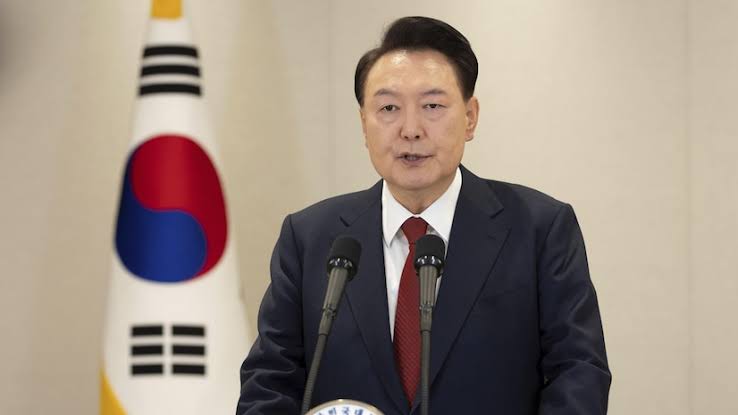
South Korea’s Constitutional Court will deliver its highly anticipated ruling on President Yoon Suk Yeol’s impeachment on Friday, months after he was suspended for declaring martial law.
Yoon’s December 3 decision to deploy armed soldiers to parliament in an attempt to subvert civilian rule plunged the country into political turmoil. Lawmakers resisted the intervention, voting down the measure before impeaching Yoon soon after. Since then, months of instability have weakened South Korea’s economy, while U.S. President Donald Trump’s sweeping tariffs have added further pressure on the region.
The Constitutional Court conducted weeks of impeachment hearings before deliberating for several more weeks, fueling speculation about internal divisions among the judges.
“The president’s impeachment case verdict will be announced on April 4, 2025, at the Constitutional Court,” the court said in a statement on Tuesday.
At least six of the court’s eight justices must vote in favor of impeachment to formally remove Yoon from office, which would trigger a new election within 60 days. In the meantime, mass protests—both in support of and against Yoon—have continued to fill the streets of Seoul.
Yoon, a former prosecutor, was arrested in January on insurrection charges but was released in early March due to procedural issues. He has remained defiant, blaming what he calls a “malicious” opposition for orchestrating his impeachment. He is also the first sitting South Korean president to stand trial in a criminal case, facing charges related to his martial law attempt.
“I expect the Constitutional Court to issue a unanimous ruling to remove Yoon from office this Friday, as the case does not involve complex legal questions regarding his declaration of martial law,” said Noh Hee-bum, an attorney and former Constitutional Court research judge.
“The court’s primary duty is to uphold the Constitution, and Yoon’s actions were a direct violation of it.”
Yoon’s People Power Party (PPP) expressed hope for a “fair and impartial” verdict, urging both ruling and opposition parties to work together to prevent further unrest.
“Regardless of the outcome, we must focus on easing public divisions and fostering national unity,” said PPP floor leader Kweon Seong-dong.
Meanwhile, the opposition Democratic Party welcomed the upcoming ruling, calling for Yoon’s immediate removal.
“We believe the court will take a strong stand in defense of democracy by impeaching Yoon Suk Yeol, the insurrectionist,” a party spokesperson said.
Opposition leader Lee Jae-myung is currently the frontrunner in a potential election should Yoon be removed. His campaign received a boost last week after an appeals court overturned a previous election law conviction, clearing the way for his candidacy. However, if the ruling is reinstated before the election, Lee could be disqualified from running.
Leif-Eric Easley, a professor at Ewha University in Seoul, noted that recent judicial decisions suggest an attempt to let the country’s political crisis be settled at the ballot box rather than in the courts.
“The judiciary seems to be trying to unwind three years of legal battles so that South Korea’s political turmoil can be resolved through elections instead,” he said.
In a separate ruling last week, the Constitutional Court dismissed the impeachment of Prime Minister Han Duck-soo, reinstating him as acting president. Experts say that decision does not necessarily indicate how the court will rule on Yoon’s case, as it did not directly address the legality of martial law.
